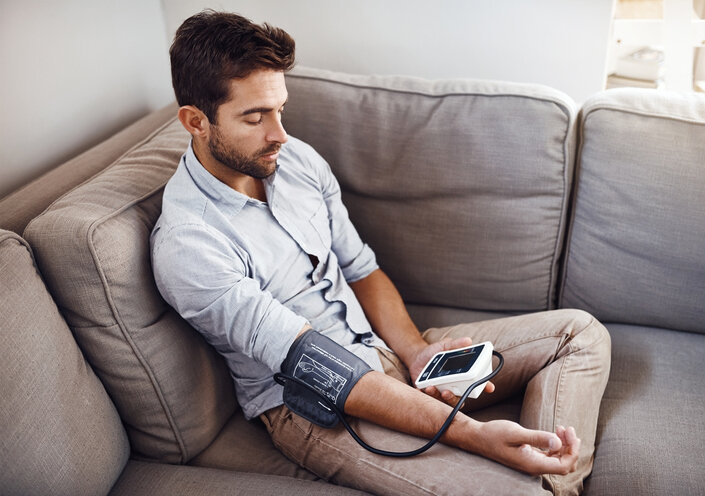Natural remedies raising low blood pressure
/Natural remedies raising low blood pressure
High blood pressure aka hypertension affects around 75 million people in the United States. That’s one out of every three people. Low blood pressure aka hypotension affects far fewer people but can also be a situation that could possibly be dangerous if it is causing symptoms or results from a sudden decrease in blood pressure.
Defining low blood pressure and symptoms of it
Normal blood pressure is defined as being less than 120/80 mmHg whereas low blood pressure is considered to be a level less than 90/60 mmHg. If a person is not experiencing any symptoms with a low blood pressure reading, most doctors usually do not have as much concern. However, any sudden change in blood pressure dropping too low can cause interruptions in the blood supply to the heart, kidneys, and brain, and will almost always be accompanied by distinctive symptoms which can include:
· Dizziness
· Fainting
· Inability to concentrate
· Blurred or distorted vision
· Nausea
· Fatigue
Sometimes, a person may have symptoms of low blood pressure when they go from a sitting position to suddenly standing up. This is known as orthostatic hypotension. Usually this is not dangerous unless positional changes cause a person’s blood pressure to drop rapidly which could lead to fainting.
In extreme situations, low blood pressure can lead to shock. A person who goes into shock needs emergency medical attention right away as there will be reduced blood flow throughout the body which can cause damage to organs at the cellular level.
Causes of low blood pressure
There can be several reasons why a person may have hypotension. First, having low blood pressure can be a sign of good health, especially if they are not experiencing any symptoms. But, other potential causes of low blood pressure could be indicative of an underlying condition needing treatment to correct it. This includes the following:
· Nutritional deficiencies
· Prolonged bed rest
· Medications
· Severe infections
· Allergic reactions
· Fall in blood volume
· Heart issues
Treating low blood pressure naturally
Generally, most people with low blood pressure do not need medications or other medical interventions to raise blood pressure. If you have concerns of having low blood pressure, are experiencing symptoms and have ruled out underlying conditions that might be causing it, there are some natural ways and lifestyle changes to raise low blood pressure which include the following:
· Consume healthy foods that naturally contain sodium
Not everyone needs to be on a low sodium diet and particularly people with low blood pressure. Gradually increase sodium intake levels to between 2000-2400 mg/day. This can be done by choosing healthy foods that naturally have a higher sodium intake such as beets, carrots, spinach, celery, cantaloupe, seaweed, meat, shrimp, shellfish, and artichokes. Also, sprinkling a little extra salt on food can also do the trick of raising blood pressure.
· Drink more water
To help increase blood volume, drink more water. A blood volume that is too low can be a potential cause of low blood pressure. Besides helping raise blood volume, consuming enough fluid each day helps avoid dehydration. Men need between 10-13 cups of water a day and women between 8-11 cups of water a day.
· Eat small meals frequently
Be sure not to skip meals or be eating large, heavy meals. Either way, it can be associated with causing blood pressure to drop. Instead, eat on a regular schedule as much as possible and try eating small meals – up to 5-6 a day - which can help keep blood pressure more regulated without going too low.
· Avoid sudden position changes
Be careful not to stand up from a sitting or lying down position too rapidly. This can cause a feeling of lightheadedness, dizziness, or potential fainting in people with hypotension. The reason why this happens is the heart has not pumped enough blood through the body quickly enough to account for the sudden change in position or elevation. If you experience this, if lying down, first sit up for a few seconds and then slowly stand or if sitting gradually stand up more slowly.
· Review medications with your doctor
Certain medications can cause a drop in blood pressure. Therefore, you could be taking a prescription medication that lowers blood pressure and not even know it. Medications to treat depression and anxiety or painkillers can lower blood pressure. Always read about the potential side effects of any medication and ask your doctor for advice before you stop taking any medication.
· Consider wearing compression stockings
Wearing compression stockings can also be beneficial in lessening or eliminating the symptoms of hypotension by preventing the pooling of blood in the legs. This ensures better and faster circulation of the blood back to the heart and lungs.
These same stockings are also used to help relieve pressure and pain associated with varicose veins.
David B. Samadi, MD, Urologic Oncology Expert and Robotic Surgeon located at 485 Madison Avenue on the 21st floor, New York, NY – 212-365-5000. Follow Dr. Samadi at www.samadimd.com, www.prostatecancer911.com, and www.roboticoncology.com.

